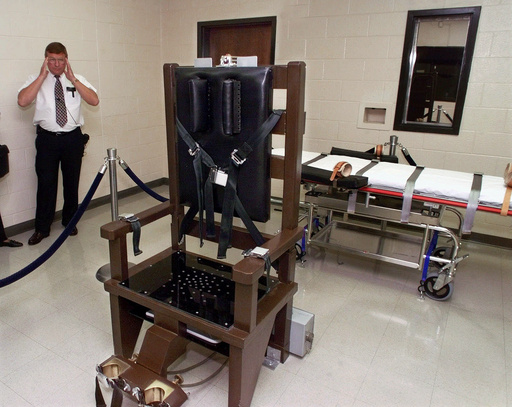NASHVILLE, Tenn. — The head of Tennessee’s corrections department announced on Wednesday that a new process for executing inmates is expected to be revealed before the end of the year. This development could mark the conclusion of a prolonged suspension of executions, which was initiated after determinations surfaced that several inmates had been executed without the necessary verification of the lethal injection drugs administered.
Commissioner Frank Strada provided this information during a legislative correctional hearing, where he stated, “We should have our protocols in place by the end of this calendar year or at the first week or two of January.” He clarified that extensive collaboration with the attorney general’s office was taking place to ensure the legality and soundness of the new protocols.
While Strada did not disclose specific details about the forthcoming execution process, he highlighted that the protracted timeline was necessary due to the involvement of numerous legal experts ensuring the protocol’s integrity. This timeframe marks the first public projection regarding the resumption of executions for death row inmates since the cessation of such operations in early 2022.
The halt occurred after Republican Governor Bill Lee recognized that the state had not adequately verified the testing of its lethal injection drugs. This issue became particularly pressing when Lee had to call off the execution of Oscar Smith just an hour prior to the scheduled time in April, citing improper testing protocols.
Subsequent public records revealed that at least two individuals were aware the night before Smith’s planned execution that the lethal injection drugs had not undergone the required testing. In response to these discoveries, Governor Lee initiated an independent review of the state’s lethal injection procedures, which was published in December 2022.
This report revealed alarming details, including that none of the drugs used for the seven executions carried out since 2018 were tested for endotoxins. Additionally, it was revealed that midazolam, one of the drugs used in a particular execution, had not been tested for potency. The testing of these drugs is mandatory, irrespective of whether the condemned inmate selects lethal injection or electrocution—a choice available for those convicted prior to January 1999.
The report was critical of the leadership within the Department of Correction, asserting that they approached the lethal injection procedures with a “tunnel-vision, result-oriented lens,” and suggested that the department failed to provide adequate training and guidance to its staff to ensure adherence to a thorough and consistent lethal injection protocol.
Tennessee’s corrections department saw a leadership change earlier this year when Strada took over in January after the previous commissioner was dismissed, along with the chief attorney and the inspector general of the department.
Kelley Henry, the head of the federal public defender’s habeas unit that advocates for many Tennessee death row inmates, expressed concern over the state’s past discrepancies in its execution protocols. She noted ongoing federal litigation challenging various components of the state’s current execution methodology, although proceedings are currently on hold due to an agreement between state and federal officials.
Henry mentioned, “The State, through the Attorney General, agreed to permit that litigation to continue at a normal pace once a new protocol is announced.” She emphasized the need for a comprehensive review of any new protocols developed given the history of misrepresentation by the state.
Furthermore, Henry indicated that she anticipates the state will refrain from scheduling execution dates while the federal lawsuit remains pending, according to the agreed terms filed with the federal court.
Under the current lethal injection protocol in Tennessee, three drugs are utilized for executions: midazolam, which serves as a sedative to render the inmate unconscious; vecuronium bromide to induce paralysis; and potassium chloride, which causes cardiac arrest.
Despite the state’s assurances that midazolam incapacitates an inmate from experiencing pain, the independent report pointed out that state correction officials were alerted in 2017 by a pharmacist that midazolam “does not elicit strong analgesic effects,” thereby allowing the possibility that an inmate could indeed feel pain during the administration of the subsequent drugs.
